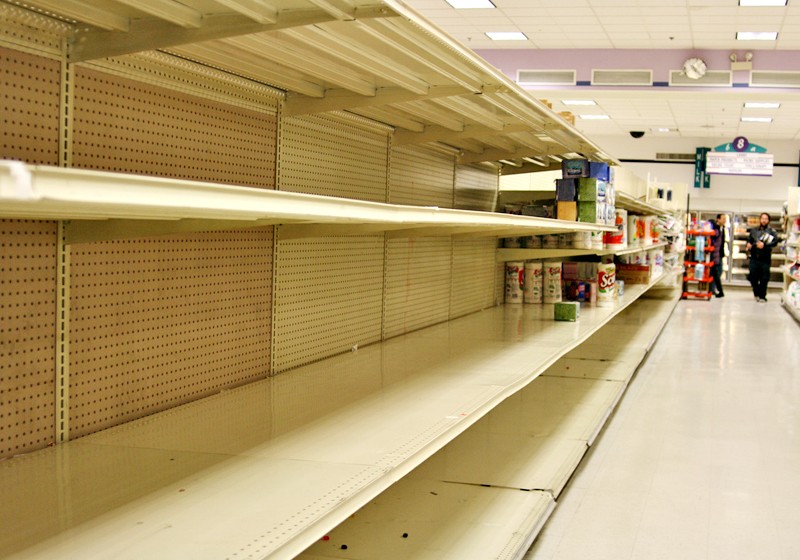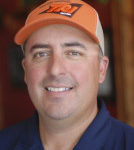By Erik Wilson
How much are YOU really willing to pay for the food, clothing, and shelter that sustains you?

I ask this question because we have arrived at a moment in time where many Americans enjoy an abundant lifestyle, where store shelves, restaurants, and even gas stations stand ready 24 hours a day to feed us when we’re hungry.
It’s a good life, but in enjoying these blessings, too many have forgotten where that sustenance—that ever-present, quality food—comes from. Other than times of natural disaster, we rarely worry about a food shortage. We take it for granted that the safe meat, the milk, the fresh vegetables and fruits will always be there, never considering the human effort, time, knowledge and persistence it takes to grow it, raise it and get it in our hands.
Several years ago, I had the opportunity to speak to a large left-leaning audience. I was invited because a member of this group thought a guy with a deep connection to agriculture would make an interesting speaker.
I provided the group with some insight and education on the multiplier effect that agriculture has on the economy. When I was done it seemed like my speech was well-received.
Shortly after I finished, a gentleman with a heavy foreign accent approached me. I asked him where was from and he told me he was from Bulgaria. He said that he liked what I had to say but felt that I was overstating the value of the agriculture industry. I said, “fair enough,” and then asked him why he had come to America. The gentleman replied that he came here to earn a college degree, which he had. That degree led him to a job as an electrical engineer for a major superconductor business.
“All we in the Ag industry are asking is for the public to be aware of what we contribute to society and the economy…”
As our conversation continued, he said he appreciates farming as it was a small farm plot worked by his mother that sustained his large family when he was young. Curious about this I asked, “So your mom grew all your food?” “Yes,” he answered proudly, and told me she also used the food to barter for other goods the family needed.
Next I asked him, “What did your mother do for fun…what were her passions? Did she paint, write, play the piano…and what were her favorite places to visit?” It was at that moment that I saw the man’s eyes well up ever so slightly with tears. He kind of grinned and said, “I know where you’re going with this.” I said, “You do? Just because I asked about your memories of mom doing the things she enjoyed doing?”
His tears began to flow then because he said he couldn’t think of one enjoyable pastime his mother had. Instead, all the memories of his mother were of her bent over, tending to the crops that sustained him and his siblings.
The gentleman quietly admitted that his mother really had no other opportunity to enjoy even the simplest of life’s pleasures. She was burdened with the task of providing sustenance for herself and her family. I smiled and said to him, “So you lived it, you saw it firsthand…yet now you’re in America and somehow you’ve forgotten the truth. Here, you might not grow your own food, or the materials for clothing and shelter, but you depend on those who do.”
“All we in the ag industry are asking is for the public to be aware of what we contribute to society and the economy…because if they become aware…if they keep it in mind every time they go to the grocery, they’ll understand why they must have a vested interest in seeing the agriculture industry stay healthy and vibrant.”
With that, the sadness in the man’s eyes was replaced with a knowing look…he got it. We shook hands and I left with great satisfaction in my heart that I made just one person rethink what truly sustains them.
But it was just one. The disconnect still looms large and it’s going to take continued effort on all of our parts to keep building bridges. People like him and people like us don’t often cross paths. We don’t get opportunities to have one-on-one conversations and make our case. But when the opportunity arises, we must do it.
By Erik Wilson

Erik Wilson is one of the Founders of My Job Depends on Ag. He is also a Father, Farmer, Small Ag Business Owner, Friend, Public Speaker and Ag Advocate. His mission has been to to show how many people’s lives are related, connected and, most importantly, dependent on agriculture.
Visit the Website: My Job Depends On Ag
Follow on Facebook: My Job Depends On Ag Group Forum
Contact: erik@myjobdependsonag.com

